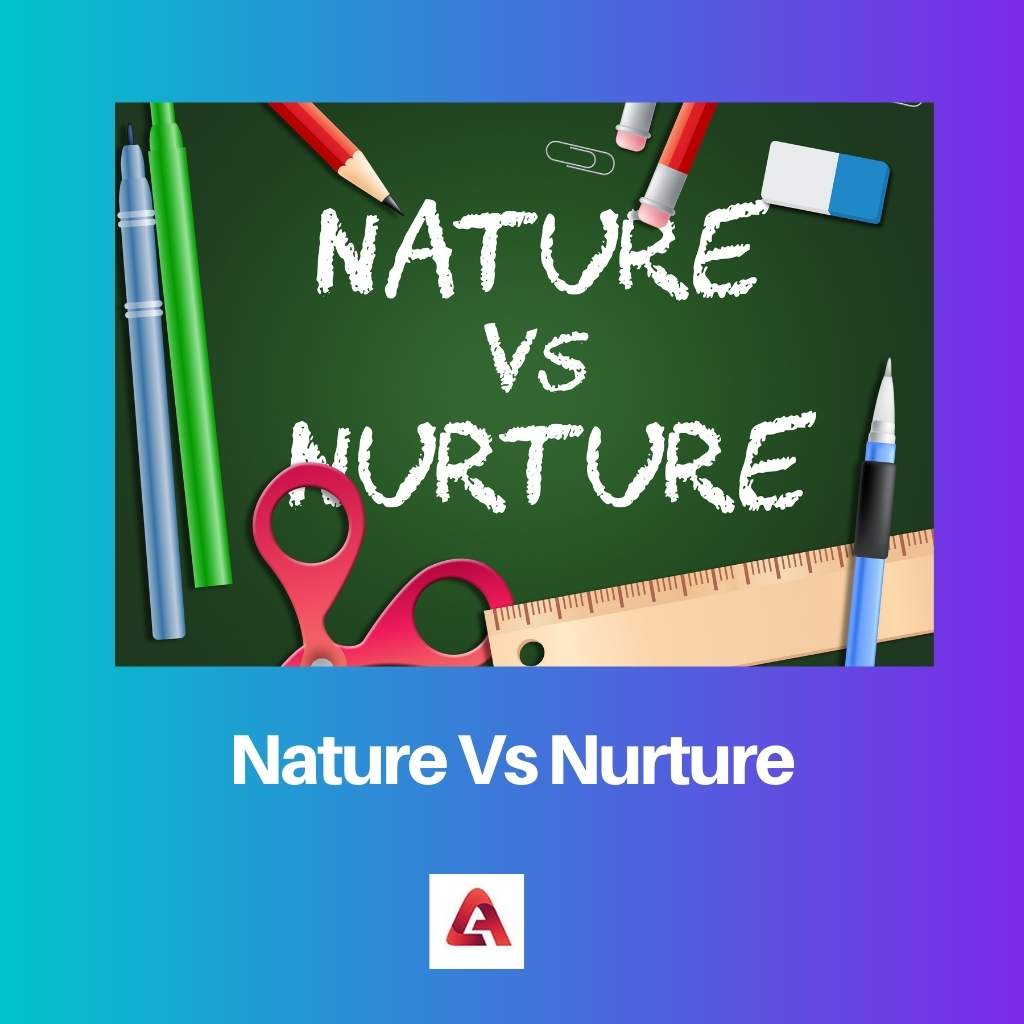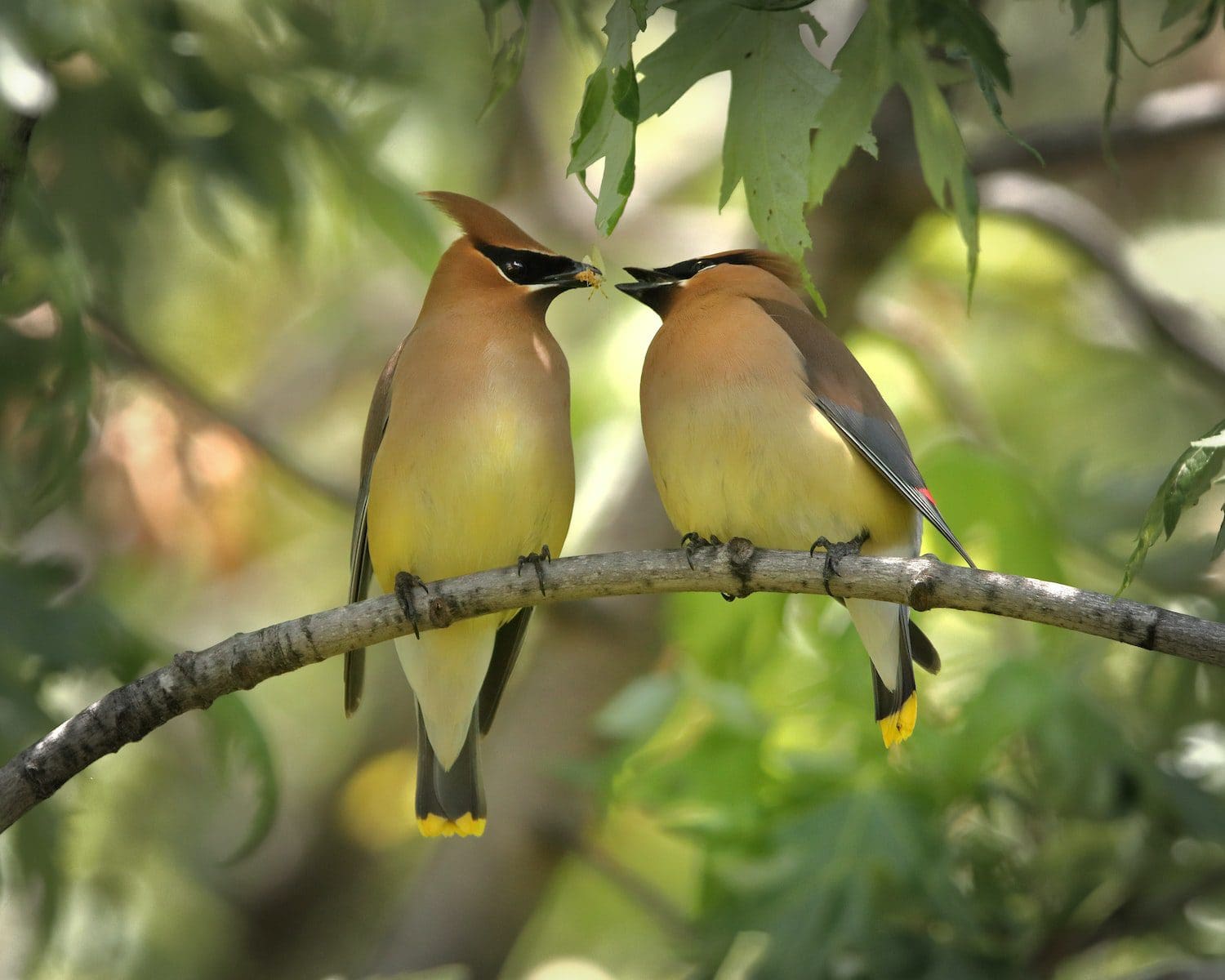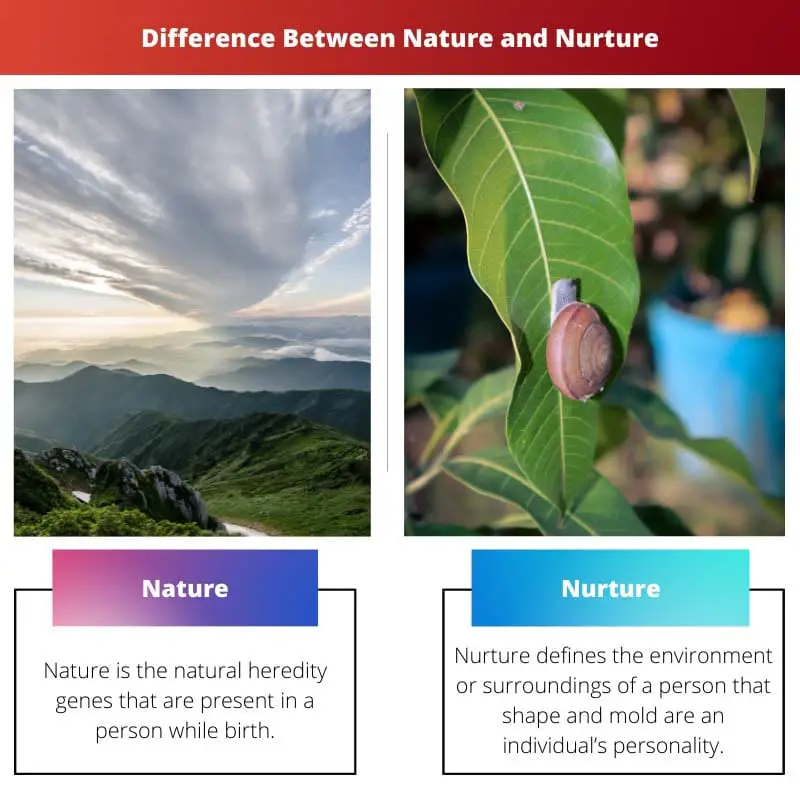The debate over whether a man’s characteristics, strengths, and weaknesses are the result of nature or nurture has and continues to go on to date between scholars and experts.
The use of the Nature vs. Nurture Theory for the very first time was done by the psychologist Sir Francis Galton in the year 1869.
Key Takeaways
- Nature refers to the genetic and biological factors that influence a person’s development. In contrast, nurture refers to the environmental factors such as upbringing and life experiences that shape a person’s development.
- Nature and nurture determine a person’s physical, cognitive, and emotional development.
- The debate between nature and nurture centers around the relative importance of each factor in shaping human behavior and traits.
Nature Vs Nurture
Nature refers to the genetic factors and the inheritance of traits that influence an individual’s personality. It debates how individuals are genetically predisposed to look, act and behave a certain way. Nurture refers to the personality of an individual influenced by the environment. It debates that the surrounding plays a role in sociability, stress-coping and behaviour.

Nature is the natural heredity genes that are present in a person during birth. Nature cannot be influenced as it is a biological inheritance.
Nature can be referred to as biological/genetic predispositions that are very impactful on an individual’s features and characteristics. The rod Nature originated from the Old French language.
Nurture defines the environment or surroundings of a person that shapes and moulds an individual’s personality. The living conditions and the endurance that an individual has to deal with in a particular environment build a trait in the individual.
Nurture is something that highlights the effect of social occurrences on a particular individual.
Comparison Table
| Parameters of Comparison | Nature | Nurture |
|---|---|---|
| Definition | Nature is the natural heredity genes that are present in a person while birth. | Nurture defines the environment or surroundings of a person that shape and mold are an individual’s personality. |
| Characteristics | Nature defines the physical appearance of an individual. | Nurture defines the personality aspects of an individual. |
| Type | Nature is a biological process. It is influenced by family factors. | Nurture is an adaptive process that is influenced by the environment. |
| Behavior | Nature is responsible for hormonal-induced behavior. | Nurture is responsible for situation induced behavior. |
| Features | The eye color, hair color are results of Nature. | The speaking accent, the ability to cope with stress are results of Nurture. |
What is Nature?
Nature means the genetic heredity that one receives during the time of birth. The effect of Nature is the first identity of a living being. Nature is responsible for the majority of the physical appearance of someone and some characteristic features.
Nature cannot be tampered with as it is a biological process. Nature is referred to as biological/genetic predispositions that are very impactful on an individual’s features and characteristics
Although the personality of someone is defined by Nature during the time of birth and till a certain point, it can change as an effect of Nurture.
But some physical traits like the color of one’s eye, the hair color, the shape of the face, and nose structure are all defined by Natural structure and cannot be altered by Nurture.
The word Nature has its origin from the Old French Language. But surprisingly, the word is derived from the word “nature,” which is a Latin word.
The word indicates “essential qualities, innate disposition” and in the ancient period, it meant “birth”.
The word nature is borrowed from the Old French nature and is derived from the Latin word “natura”, or “essential qualities, innate disposition”, and in ancient times, literally meant “birth”.
According to sources, in the timeline of ancient philosophy, the word “natura” is used as the Latin translation of the Greek word “physis”, which signifies the complexities in the characteristics of plants and animals.

What is Nurture?
The idea of nurture highlights the significance of social environments – who you’re with and no longer who you’re born to – and its substantial effect on social-emotional abilities, well-being, and behaviour.
Children and younger human beings who have an awesome beginning in existence are proven to have substantial blessings over the ones who lack or distorted early attachments.
They tend to do higher at college, attend regularly, shape greater significant friendships and are extensively much less likely to offend or enjoy bodily or intellectual fitness problems.
The nurturing method gives more than a few possibilities for youngsters and younger human beings to interact with those lacking early nurturing studies, giving them the social and emotional abilities to do nicely at college and with peers, increasing their resilience and their ability to deal with greater with a bit of luck with the rigours and tribulations of existence, for existence.
Nurture is taken because of the effect of outside elements after conception, like the manufactured from exposure and intelligence of an individual.
Nurture refers to all the environmental variables that affect who we are, including our early life studies, how we have been raised, our social relationships, and our surrounding culture.

Main Differences Between Nature and Nurture
- Nature is the natural heredity that defines one’s personality trait, whereas Nurture defines the surroundings of a person that shape and mold an individual’s personality.
- Nature defines the physical appearance of an individual, while Nurture defines the personality aspects of an individual.
- Nature is completely based on heredity, while Nurture is not at all based on heredity.
- Nature is responsible for hormonal-induced behaviour. In Contrast, Nurture is an upbringing process that is influenced by the surroundings.
- The effects of Nature are very prominent during birth, while the effects of nurture are prominent during and after the growth of an individual.

The article provides a comprehensive breakdown of the Nature vs Nurture debate. It’s a vital topic in understanding human behavior and traits.
Absolutely, the nature vs nurture debate has significant implications in psychology and sociology.
I agree, the article has presented the key takeaways in a clear and organized manner.
The article eloquently dissects the nature vs nurture debate, offering valuable insights into the factors that shape our development and behavior.
Agreed, the comprehensive breakdown of nature and nurture enriches our understanding of human psychology and sociology.
The discussion on nature and nurture is essential in understanding the multifaceted influences on human behavior and characteristics.
Absolutely, the implications of nature and nurture are far-reaching and have significant implications in various fields of study.
The article’s breakdown of nature and nurture is crucial in understanding the nuances of human development and behavior.
Indeed, the article serves as a valuable resource for delving into this complex and enduring debate.
I appreciate the clear distinction between nature and nurture provided in the article, making it easier to comprehend the topic.
The article’s meticulous examination of the nature vs nurture debate contributes to the ongoing scholarly discourse on human development and behavior.
The article provides an insightful exploration of the nature vs nurture debate, shedding light on the key differences between the two concepts.
Yes, it’s fascinating to delve into the complexities of how genetics and environment shape human development.
I found the comparison table particularly helpful in understanding the distinctions between nature and nurture.
The article’s exploration of nature and nurture offers a thought-provoking analysis of the influences on human behavior and traits.
The article’s emphasis on the main differences between nature and nurture is a commendable feature, providing clarity on a complex subject.
Indeed, the nature vs nurture debate is a perennial topic that requires careful consideration and scholarly examination.
The analysis presented in the article sheds light on the age-old nature vs nurture debate, providing valuable insight into the factors that shape human behavior and traits.